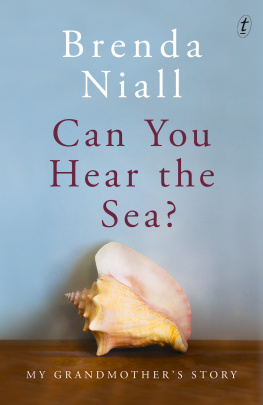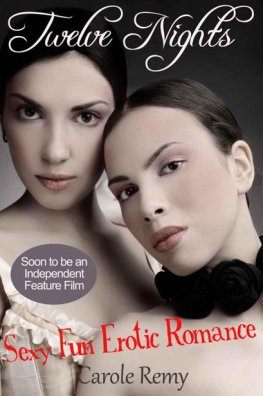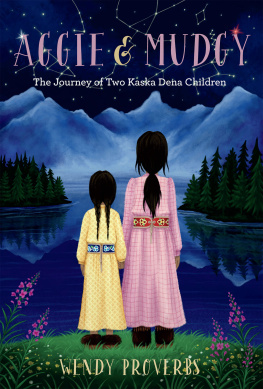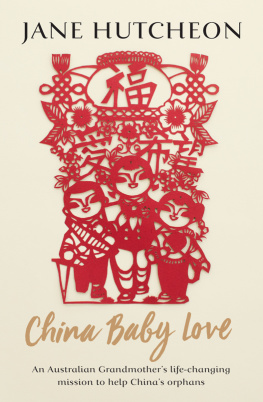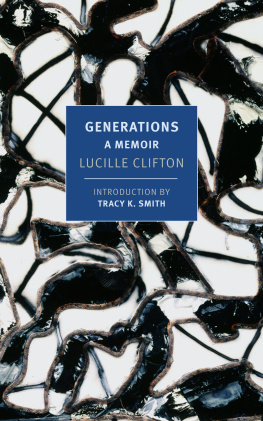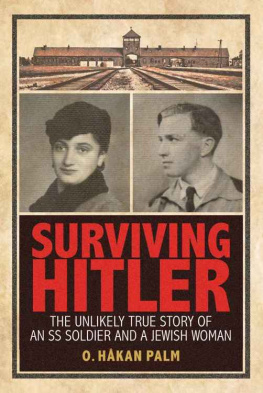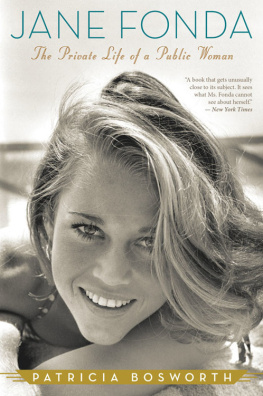In one of her few plaintive moments, Aggie said: All my life Ive wanted to live in a house by the sea where I could look out of the window and watch the boats coming in. That longing was expressed in one of her small treasures: a brown and white conch shell that she kept on the windowsill beside her armchair.
All her grandchildren loved the shell.
Can you hear the sea? Aggie would say, as each child held it and heard, miraculously, the sound of waves.
In 1888, a young woman left her home in the great seaport city of Liverpool with her older brother and sister, bound for Australia.
Aggie and Minnie were to keep house for their brother in the new land. But Joe didnt survive the journeyhe died at sea. And the sisters arrived alone in Sydney, facing either a return to a comfortable but limiting home or a life of uncertainty and challenge.
Nineteen-year-old Agnes Jane Maguire chose to stay.
Brenda Niall focuses her biographers attention on the life of her grandmother, Aggie, and tells the story of a strong, independent woman who taught in country schools before marrying a Riverina grazier whose large, powerful family was wary of a newcomer with ideas of her own.
Aggies story shines a light on a period in Australias history through the life of a calmly determined woman who made her own choices and was an enduring influence on her descendants.
CONTENTS
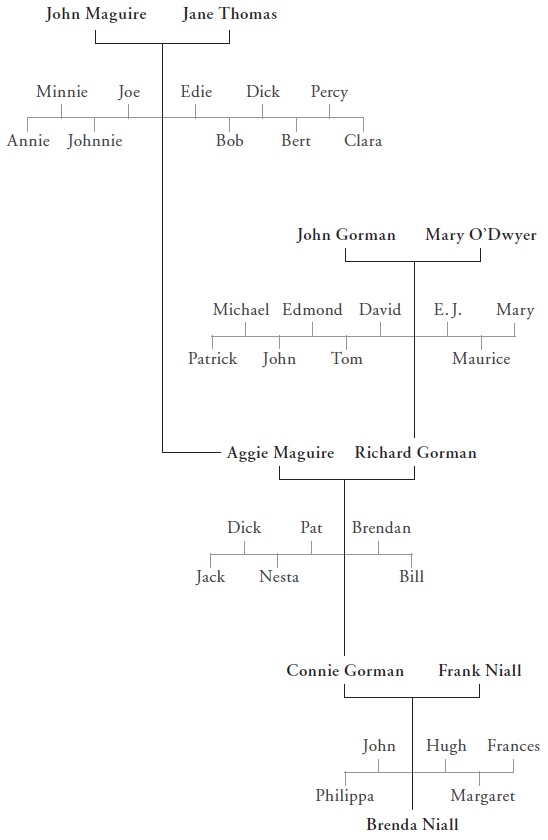
On Christmas Eve, 1940, soon after my tenth birthday, my grandmother gave me a small wooden box with a lock and key. There was nothing inside it, and as far as I can remember she didnt explain it. Id been expecting a book: that was what she always gave to me and my brothers and sisters, and our cousins. I still have a later gift: Wilkie Collins classic detective story The Moonstone, given when I was fourteen. From earliest childhood I remember her reading to me from Kiplings Just So Stories and laughing so much at the Elephants Childs persistent questions that she had to stop for breath. Books mattered to her; she could think of nothing better for her many grandchildren than the gift of words. Even when she couldnt afford the expense, she bought a five-shilling book, usually an Everyman classic, for each of us who was old enough to read. But the empty box: why then, and why to me?
I knew about the box, though I was too young to understand its meaning, and even now it holds a mystery. I knew that it was part of the story of my grandmothers arrival in Australia in 1888. She was just nineteen, and she had made the long voyage by sailing ship from her home in Liverpool with her older sister and brother, Minnie and Joe.
She was Agnes Jane, known as Aggie, the fifth of the eleven children of Irish-born John and Jane Maguire. Like hundreds of thousands of others in Liverpool, John and Jane had been part of the great wave of Irish emigration in the 1840s, the decade of the Great Hunger. A million starved; and those who could find the fare left Ireland for England, the United States or Australia. The New World offered more hope, but Liverpool was cheaper by far. You could get from Dublin to Liverpool in the 1840s for five shillings steerage or tenpence on deck. After some years of struggle, John Maguire prospered in Liverpool, and he married and brought up his family there. When Aggie embarked on the voyage to Australia she came in a spirit of hope and adventure, not the desperation of her parents generation.
I cant remember hearing much about my grandmothers childhood. For me, her story began in 1888, when the three young Maguires set sail for Australia. By then the family had moved beyond its Irish refugee origins, and was well on its way on an extraordinary rags-to-riches journey. The main reason for leaving Liverpool was concern about the health of the second son, Joe, who was nearly twenty-one. He was said to have a weak chest. This phrase usually meant tuberculosis or the fear of it. Leaving damp and smoggy Liverpool for sunny Australia would give Joe a chance.
Aggie never said much about the voyage out. An ordeal for anyone, it would have been a searing experience for a nineteen-year-old who had left home for the first time. The Trafalgar was a cargo shipquite small at just over 1400 tonsthat carried twenty-four passengers on the voyage of 1888. It wouldnt have been especially comfortable, and there were none of the diversions that passenger ships could offer. The Maguires embarked on 22 May and arrived on 23 August. There had been three deaths at sea. Joe Maguire was one of them.
Before he died, he had passed the time in the ships carpenters shop, making a little cedar box for his sister Aggie to keep things in. The box became a poignant reminder of Joe, and of that desolate day when his coffin was lowered into the sea. It was a link with Aggies childhood in Liverpool, the great seaport city of northern England, destination and departure point for the ships of the world.
I dont know why, more than fifty years on, my grandmother gave Joes box to me, but I remember that, just a few months earlier, her flat had been burgled and the box wrenched open. Papers were scattered and some jewellery was taken. At the time, she was away from home. The burglary was reported to my mother, who went to check the damage. I was excited to hear of a break-in so near home and by my first sighting of a policeman. My mother was distressed about the broken box, and she took it to be repaired. She didnt make the mistake of giving it a new look; a few fine scratches on the base and some worn edges still showed its age, as they do today. With a new lock and key, smaller than the originals, it seemed as strong as ever, but Grandmother never used it again. A few months later she pasted a Christmas card inside the lid, with my name on it and let me make what I could of this puzzling, remarkable gift, her link with her Liverpool past.
Now, after seventy-five years in my possession, the box is empty. Ive taken out my own private papers and turned my mind to the box as it was in 1888, to the nineteen-year-old Aggie Maguire on the long sea journey, and to the young woman who went teaching in a one-room bush school in northern Victoria and fell in love with a Riverina grazier.
If Aggie had personal papers in the box, they were lost long ago. I depend on public records, places and people. My own memories are limited: I didnt ask enough questions. How much can I now discover about my grandmother when she was young? My mothers papers, which include a family memoir, go back only to her own childhood in the early years of the twentieth century. In her closely written pages, I see Aggie as a young widow, mother of seven, enduring loneliness on the country property left for her to manage when her husband died. Choosing to put her children first, she did her best to give them a happy childhood. She made the same choice for her grandchildren. At a stage in life when she could have put her own needs and wishes first, Aggie created a warm and lively family centre for her many grandchildren in their boarding-school years. It wasnt a small matter. There were often half-a-dozen teenagers visiting at the same time, all with different needs and temperaments, most of them missing home. Whether they came from outback New South Wales, Deniliquin or Bendigo, they were all hungry for her attention as well as her cooking and one anothers company. As one of the city grandchildren, I enjoyed the exuberant space she created for us all. Grannys Sunday Sanctuary was a haven for the homesick, a family fortress, a place where you felt free to join in whatever was happening or retreat to read on the back veranda.

